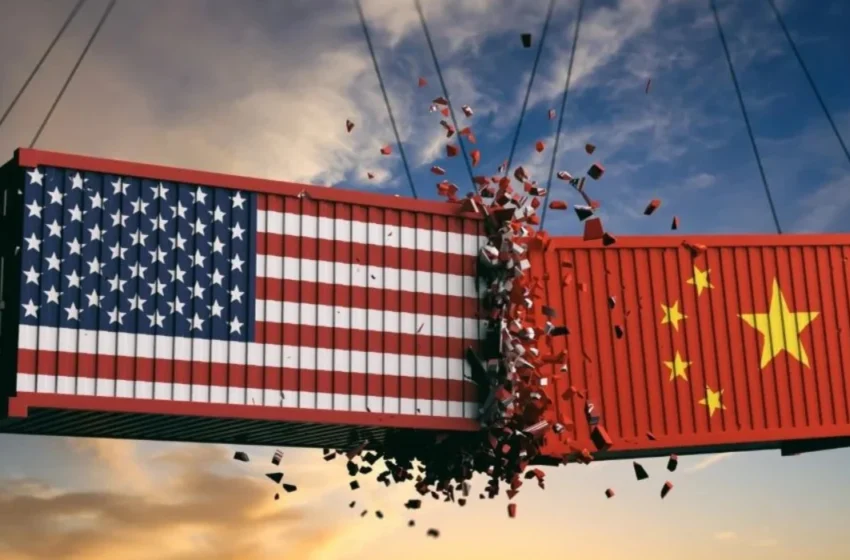
Washington ( Europe Brief News) – The United States and China said Monday that they had agreed to a 90-day pause on most of the tariffs they have imposed on each other since last month, sending stocks soaring amid hopes of an easing trade war between the world’s two largest economies.
The combined U.S. tariffs rate on Chinese imports will be reduced to 30% from 145%, and China’s levies on the U.S. imports will be reduced to 10% from 125%, the two countries said in a joint statement.
First Face-to-Face Talks Since Tariff Escalation
The early morning announcement followed a setting behind closed doors in Geneva over the weekend by officials from the two countries. It was the first face-to-face talks on the tariffs since President Donald Trump’s shock “Liberation Day” announcement last month, imposing 84% duties on Chinese imports, which subsequently climbed to 125% — and then to 145% a day later.
The new 30% is the total of the 20% duty imposed on tariffs imposed in the first weeks of his second term, in response to China’s alleged inaction on fentanyl flows, plus the 10% across-the-board tariff Trump has imposed on everyone, according to NBC News.
Markets surged on Monday when the news came as recession fears evaporated early in trading. The S&P 500 rallied 2.6% and the Dow Jones Industrial Average rose more than 1,000 points, or roughly 2.5%. The tech-focused Nasdaq jumped 3.5%.
However, other analysts were more measured in their predictions, saying tariffs are generally still high against the levels they were before Trump’s presidency. That means U.S. consumer goods will also continue to record higher prices.
“The entire package of U.S tariffs will remain significantly higher and by much broader than the markets had anticipated at the beginning of the current year”
Goldman Sachs Analysts wrote to their clients on Monday.
The analysts also pointed out that the China tariffs reduction is, for now, pencilled in for just 90 days–something that “should keep uncertainty high for both investors and businesses.”
As it is, the goods trade deficit with China is higher than any other country, and Trump has frequently complained of getting “ripped off” by China through unsavoury trade deals. Not like the other U.S trading partners, Beijing retaliated with respective retaliatory tariffs and other nontariff measures against Washington, which had quickly ratcheted up in a dizzying game of one-upmanship.
New Mechanism to Prevent Further Tariff Escalation
Officials of the U.S. “had very constructive and positive conversations with our Chinese counterparts, who clearly came to deal this week,” U.S. Trade Representative Jamieson Greer said at a news conference in Geneva.
The tariffs had grown “to the equivalent of an embargo” that neither side sought, said Treasury Secretary Scott Bessent, who represented the U.S. at the talks.
“We do want trade, we want more balanced trade, and I think that both sides are committed to achieving that.”,
he said.
Bessent dismissed the idea that perhaps it would have been better to begin with negotiations instead of declaring a string of tariffs that caused global financial upheaval, saying the U.S. had already attempted to rebalance trade, and “business as usual” would not have gotten them anywhere.
In an interview Monday morning on CNBC, Bessent said that the two countries now have “a mechanism to avoid the upward tariff pressure.”


